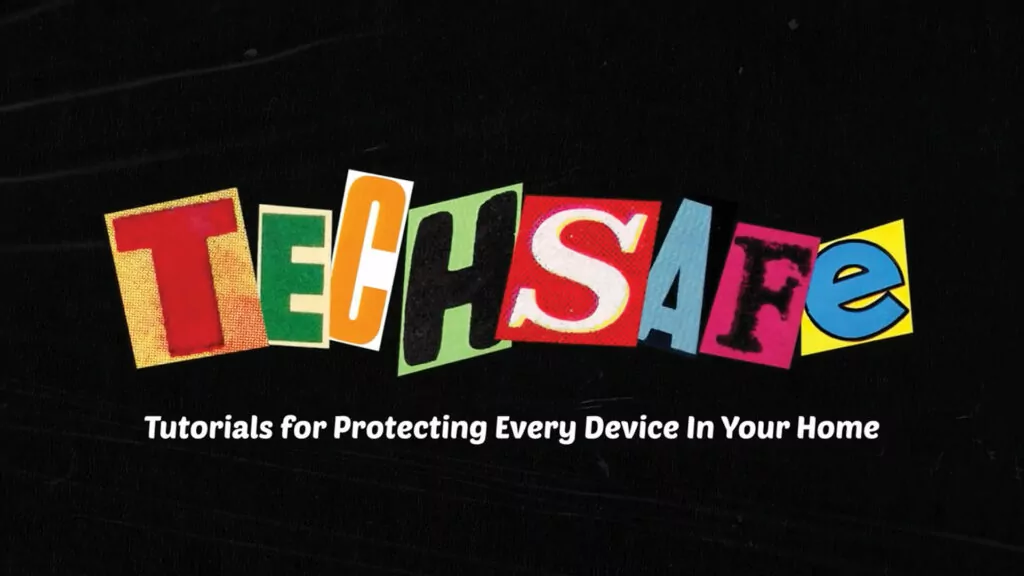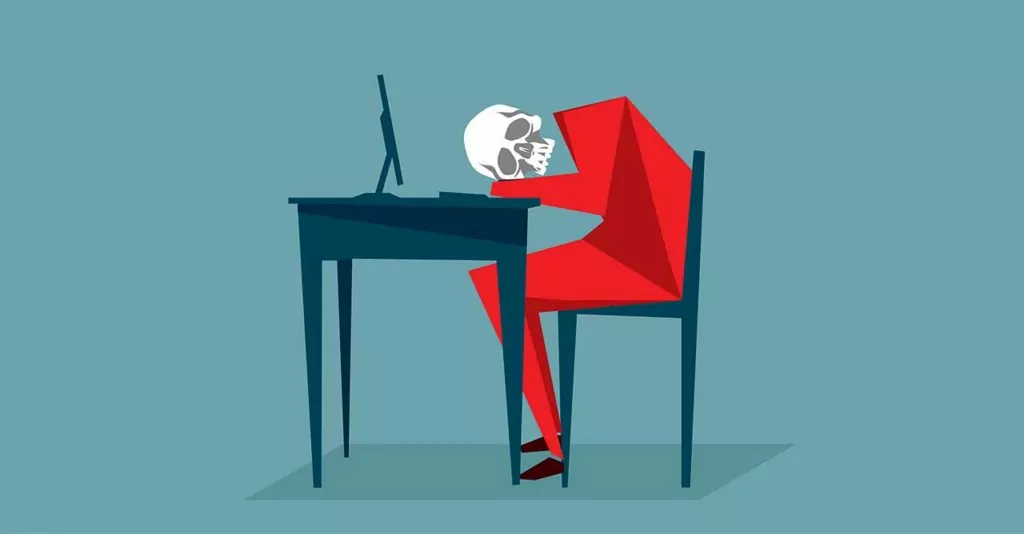
Pornography
How to lock your phone from pornography… 101
A taste of Into the Light Ministries’ TechSafe series
*****
“Always lock the doors.” As a boy, this teaching served me well. We lived in a place with frequent break-ins, so the danger was real and present. We only had four doors in our home so “Always lock the doors” was an easy command to follow. Teaching us this was part of what my parents did to protect our home. And protecting the home front is what loving parents do, right?
But in 2025, there are new kinds of dangers. The most dangerous doorway into your house is no longer through your front entrance – it’s in your pocket. It is in our children’s pockets and hands. And there are often hundreds of doorways to pornography on your phone. It takes time and energy to find, monitor, and lock all of these.
I’m here to help. In this article, I will show you how to lock down your phones, protect yourself and your children, and live with a phone to the glory of God. Here are eight key steps that will make your devices far safer.
Step 1: Learn the phone
Think about how often you use your phone. Have you ever asked what a phone is? Have you ever asked how information gets to your phone?
Simply put, a smartphone is an information machine. Any time you use your phone to watch a video, listen to music, or read an article you are receiving video and audio information. But information can come into a phone through Wi-Fi, data, Bluetooth, the phone's camera, and other means. Each one of these represents a unique doorway into your device and, therefore, your home. And since smartphones can fit in your pocket, they are designed to be personal and private. Statistics show that most pornography is accessed on a smartphone.
What does this mean? You need to get to know your device. You do not need to be a tech wizard, but you do need to be generally familiar with it.
Step 2: Control Wi-Fi
The main way information enters the phone is through Wi-Fi. Every app on your phone uses Wi-Fi to access the internet to obtain whatever information it needs, whether that's Spotify to stream music or Google to find a new recipe.
We sometimes think of the internet as something that is in our home, but it’s not. The internet is way out in the wide world. We access the internet through our internet service providers (ISP), and we connect to the internet providers through Wi-Fi. How does that Wi-Fi get to our devices? A router.
A router makes Wi-Fi so that all your devices can connect to the internet. Without a router, your Wi-Fi could not travel from the wire in the wall, through the air, and into your phone. Your wireless devices couldn’t connect to the World Wide Web. The router creates a Wi-Fi signal and carries the internet service through the Wi-Fi signal to every part of your house so that all your devices can connect to the internet.
This access to the internet can be used for good, such as searching for a new recipe or for a used car on Facebook marketplace. It can also be used for evil, such as searching for pornography. Normal routers carry all of this information to your phone indiscriminately of what is good and what is evil.
A smart router, on the other hand, will monitor, filter, and (if necessary) block this content before it even sends it out over the Wi-Fi. This smart router will let that recipe reach any device that searches for it, but it might block Facebook for some of the younger teens' phones while allowing it for the parents’ phones. Best of all, it will block pornography for all devices, entirely. So your second step to locking doors on your phone is to buy a smart router like Bark or Gryphon to have powerful router-level monitoring, blocking and filtering tools.
If you want more information on routers, we have an entire video on this in the TechSafe router series.
Step 3: Install Covenant Eyes
Wi-Fi-level router monitoring systems are amazing, but they only work while on Wi-Fi. When a phone is not in your home or not on your Wi-Fi network, these smart routers can’t filter anything for you. This is why an accountability system that stays on the device at all times is essential. So step three is to install accountability software to monitor, filter, and block content on the smartphone device.
We recommend you install Covenant Eyes. This accountability software helps you keep your kids or yourself accountable to what is viewed online. It even sends reports to any ally of choice. Covenant Eyes enables you to block specific websites or apps that you don’t want your child browsing on, ranging from explicit websites to even benign websites that may waste time.
To learn how to set up and install Covenant Eyes on your phone, go to CovenantEyes.com, and they will walk you through the entire process. You can try it out and get your first month free by using the code: INTOTHELIGHT.
Step 4: Assess apps
In steps one through three, you have increased your security for the whole house, but there are many doors still left open on individual devices. The most common danger points show up in a phone's apps.
Apps are just roads to get you to the information you want to view, receive, or send. While some apps can be monitored by accountability software, some cannot. An app with open access to the internet that is not monitored, filtered, or blocked is simply too risky to leave unattended.
It is vital to go through all the apps on the phone and delete any that are unnecessary or could be a road to access explicit content. If you see apps that you or your child don’t need, then delete them! There are also app categories like social media, dating, or streaming services that are very dangerous to have on a device. Unless you or your child have demonstrated significant levels of self-control, these apps should not be on the phone. They often provide direct access to explicit material through their internal browsers.
Other app types like gaming or messaging can be dangerous for other reasons, like getting sent inappropriate pictures, being groomed by a predator, or seeing sexually provocative ads after a game. This is why every app must be assessed and reviewed before leaving it on your or your child's device. It will take some serious time to work through each app, testing links, looking for chat boxes, watching for ads, and assessing any other potential danger points, but it is worth it!
Step 5: Set up parental controls
Finally, step five is to set up parental controls. Many apps and phones have parental controls built into the phone – these are good and powerful tools. See our video on video smartphones to learn more about these parental controls and to find links to the websites of the specific devices you use.
What do parental controls do? Why are they helpful in protecting yourself and your home?
They keep you from losing all the work you did in step four. Without parental controls on the device level, locking down the app store or play store, the deleted apps can just be redownloaded!
Most phones have parental or screen time controls built in that allow you to disable the app store with a password that only you know. You can also set time limits for games or communication apps, set age-level content restrictions, block in-app purchases, and set device-specific downtime. For example, if you don't think that your children should be on their devices past 10:00 pm, you can set that up through parental controls on their devices.
Many of these parental controls can be found in the settings portion of the phone itself, or have their own accompanying app that can go on your phone, so you can monitor, block, and filter your child's phone from afar. Remember, these parental controls are not designed for tech wizards, they are made for you.
Step 6: Consider other devices
If you’ve not guessed it already, smartphones are complex and very difficult to lock down. They are very powerful devices, which make them powerful to accomplish good… but also evil. Because of this, you might want to question whether or not you or your child needs a smartphone. Step six, consider “dumbphones” and “child phones.”
On the outside, dumbphones look very similar to smartphones, but their operating system is hyper-minimalistic. They have black and white screens and only a handful of features like calling, text, GPS, and a few other basic functions. That's it.
Many adults love dumbphones because they are distraction-free. But because they are so limited, they are also a safe option for your child’s first phone. It's literally impossible to surf the internet on a dumbphone, unlike some old-school flip phones. We recommend looking at the LITE Phone and the WISE Phone. A quick Google search will bring you to their website, and you can also get a small discount on your order when you use the code: INTOTHELIGHT.
If the temptation to pornography or to doomscroll Instagram is an active struggle in your life, then you should consider a dumbphone or child phone.
Step 7: Change rhythms and rules
While all of these “tech” solutions are essential to making a smartphone safe to use, they are only one-half of the conversation. You need to think through household rhythms and rules that will bolster your ability to keep an eye on things and protect yourself. If your children want a particular app, allow them to make a case for it, and then evaluate together the dangers and benefits of the app.
Here is a list of ideas to get your brain working on the patterns you might want to put in place for your home. While this list isn’t comprehensive, it is a good place to start.
- No phones in the bedroom: personal devices need to be used in a common area in the house.
- Device curfew: All devices in the home get turned off at nine or ten at night. You can also have all devices charging in the kitchen overnight, even friends' devices.
- All apps, software, and media need to be approved by you, the parent, or your spouse before being downloaded or watched.
- You, not your children, own the devices in the home, and you have the authority to check on those devices as needed. Let your children know that you might look at their apps or search history from time to time.
- If there is a particular way you want your children to act with their smartphone, make sure you model that yourself.
- If you have children, invite your older children into the conversation. These ideas should just be a start to get your mind thinking.
Ultimately you know what's best for your home. Spend some time in prayer asking the Lord for wisdom as you set up rules for your house. If you are married, make sure you do this with your spouse.
Step 8: Rinse and repeat because it’s worth it
Step eight is to rinse and repeat. Imagine if you only locked your house’s doors one day in the year. You might say to yourself, “Alright, everything is safe and locked up!” Of course, this does not account for the other 364 days of the year or the regular unlocking that happens over time. The same is true for smartphones. This “how to” is not a one-time, fix-all solution. Rather, it’s a roadmap to a lifestyle change. And thankfully, God addresses the very work you’re doing here.
In Matthew 5, Jesus teaches us how to handle these temptations to sin – radical danger calls for radical measures. He says, “If your right eye causes you to sin, tear it out and throw it away. For it is better that you lose one of your members than that your whole body be thrown into hell.” Of course, Jesus does not want you to literally tear your eyes out. Rather, He wants you to take the necessary steps to protect yourself from sin. Where temptation is present, radical measures are necessary. In fact, the way Jesus describes the dangerous result of indulging in sin – which is the eternal judgment of God – makes radical measures appear normal, even necessary. In fact, to Jesus losing an eye is nominal compared to losing your whole body. If you are tempted to sin with your phone, Jesus is calling you to tear out your right eye by locking down the doorways to sin on your phone.
Be encouraged, Jesus never calls His people to do something without providing the grace to do it.
Conclusion
Whew. That’s a lot. We understand how overwhelming this can be, but be encouraged – the fact that you are reading this article shows that you have the desire to make changes and protect your family.
May God bless your efforts to secure your home, raise children of integrity, and glorify Him supremely.
Where can I get more help?
This article is a taste of what we’re doing at TechSafe, a tutorial series for protecting every device in your home. The help doesn’t stop with just your phone; we’ve also tackled your computer, tablets, Smart TVs, gaming consoles, routers, VR headsets and more. And we have a separate tutorial for each one.
So now you don’t have to be a tech wizard to protect your home! Whether you are a parent wanting to safeguard your family, a struggler seeking to cut off access, or a pastor looking to equip your church, this series is for you. These tutorials will equip you to safely live with and enjoy your technology to the glory of God.
Let us walk you through this complicated process on our website, where we will provide everything you need to know about every device that you own. It’s all at IntoTheLightMinistries.ca/TechSafe – we will ask you for your name and email, but that’s it. It’s all free.
















